Thanks to the Channel and its profound ramifications throughout history, Britain has never been “of” Europe in any way like the nations on the Continent. Its orientation has for centuries been more outward, more maritime, first Atlantic and then global and with, frankly, a continuous and strong strain of Euro-skepticism.
The ever-insightful Stratfor has understandably, if somewhat uncharitably, characterized Great Britain’s long-term self-interest vis-a-vis the Continent as ensuring that the Continent remains essentially divided and without a dominant hegemon. I’m a sworn enemy of conspiracy theories, but I have yet to hear an informed observer opine that Brexit strengthens the EU as an integrated polis.
But let’s leave the politics immediately behind; that’s for others who, bless them, have spent their lives in those milieus. No sum you can imagine would persuade me to follow into those precincts.
Some concluding facts and a thought experiment:
- English and UK law (and for that matter US and New York law) have not been repealed or compromised one jot; if they were the lingua franca for global deals yesterday morning, so will they be tonight.
- London, with New York and [Hong Kong/Singapore/Shanghai] is an unrivalled financial and capital markets center playing on a global stage. Talent, infrastructure, world-view, and ways of life required to support such a center cannot be recreated or transplanted on any time scale short of generations.
- Much talk has been and will be spilled over whether the UK needs the EU more or vice versa. Preposterous and unanswerable question: They need each other, as they are what in some sense economists would characterize as a “bilateral monopoly” (or at least “bilateral highly concentrated industries”). Far more will be gained by cooperating than throwing fits of pique, and models are ready to hand for how non-EU nations (Norway, Switzerland, the US for that matter) can establish profitable and mutually self-sustaining relations.
- If you doubt the last point, ask yourself whether you would rather be the fifth largest economy in the world, with a fundamentally dynamic and global business orientation, birthplace of the Industrial Revolution, the Enlightenment, and Magna Carta, a magnet for talent and investment; or a sclerotically regulated, internally riven, delusionally democratic, structurally incoherent jumble divided by millennia of language, history, tradition and culture, with baked-in demographic challenges galore and no clear forward or reverse gear. (Have I made my view clear?)
Finally, the thought experiment: Static analysis is always fallacious. Dynamic analysis can be wrong but at least it gives you a prayer. Static analysis is, “If this, then that. Period.” Dynamic analysis is, “If this, then probably that, in which case this other thing, which could prompt that party to do X, calling forth responses Y and Z, ….”
In other words, individuals, nations, corporations, and even law firms, have agency, have choice, and can respond in imaginative, creative, and (yes) competitive ways to help the future unfold in ways unforeseen and unimagined. “Leave” will quickly find they have waved no magic wand, and “Remain” may find their core principles can still be vindicated. May I leave you on a jocular note? We could all perhaps use a bit of levity right now.
From the cult classic movie, Animal House:
To quote the then-future U.S. Senator John Blutarski, “It not over until we say it is. Was it over when the Germans bombed Pearl Harbor?”
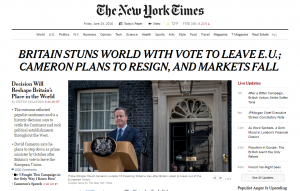 |
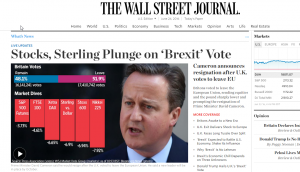 |
|---|---|
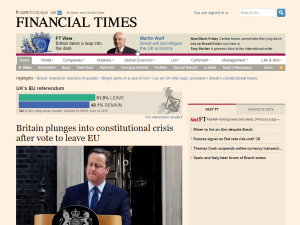 |
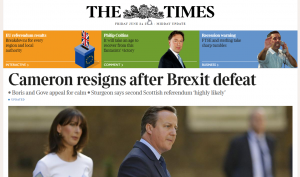 |
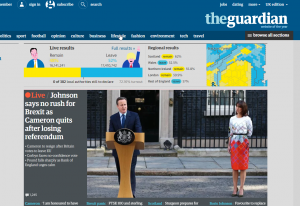 |
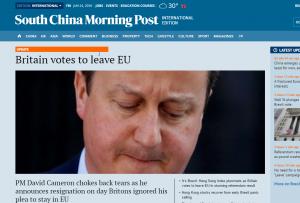 |


